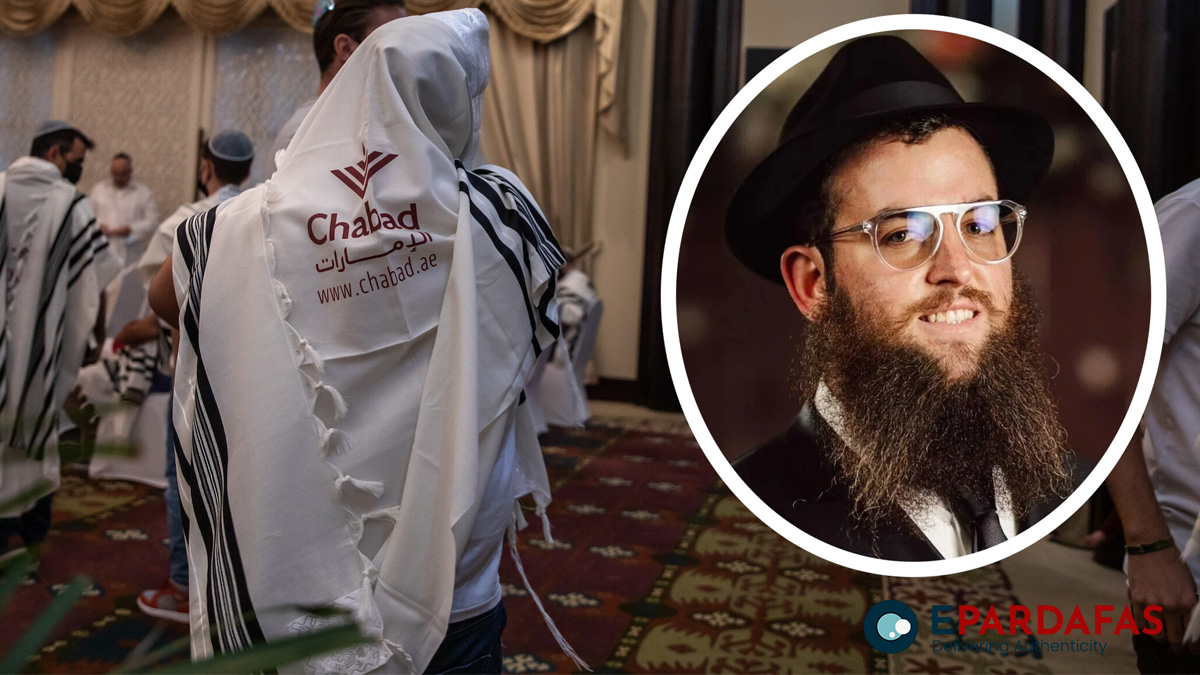
Chabad Rabbi’s Murder in UAE: A Gruesome Reminder of Anti-Semitic Terrorism
Rabbi Tzvi Kogan, a Jewish cleric found murdered in the United Arab Emirates (UAE), was the nephew of Rabbi Gavriel Holtzberg, who, along with his wife Rivka, was brutally killed in the 2008 terror attack at the Nariman Chabad House in Mumbai, India. The tragic connection between the two incidents has reignited global attention on the enduring threat of anti-Semitic violence.
The UAE authorities have yet to confirm Rabbi Kogan’s death, but Israeli leaders have unequivocally denounced the killing as an anti-Semitic terrorist act. Rabbi Kogan, a dual Israeli-Moldovan citizen, was a representative of the Chabad Hasidic movement, an ultra-Orthodox Jewish outreach organization with a global presence.
Israeli Leaders Condemn the Attack
Israeli Prime Minister Benjamin Netanyahu strongly condemned the murder during a cabinet meeting, describing it as an “abhorrent anti-Semitic terrorist attack.” He pledged to bring the perpetrators to justice.
“The State of Israel will use all means to deal with these murderers and those who dispatched them,” Netanyahu declared. “None of them will get away.”
President Isaac Herzog echoed the condemnation, calling the murder a reminder of the “inhumanity of the enemies of the Jewish people.” Herzog also emphasized that such acts of hatred would not deter the Jewish community from thriving in the UAE or anywhere else.
A Legacy of Violence Against Chabad Emissaries
The death of Rabbi Kogan brings to mind the harrowing events of November 2008, when his uncle, Rabbi Gavriel Holtzberg, and his wife were among the 165 victims of the Mumbai terror attacks orchestrated by Lashkar-e-Taiba (LeT). The Holtzbergs’ young son, Moshe, survived the attack thanks to the bravery of his nanny.
The Chabad House in Mumbai, a symbol of Jewish life and community outreach, was specifically targeted in the attacks, underscoring the global reach of anti-Semitic terror.
The UAE-Israel Context
Rabbi Kogan’s murder has strained the diplomatic ties established between the UAE and Israel following the historic Abraham Accords of 2020, which normalized relations between the two nations. The UAE has been a hub for Chabad activities, fostering Jewish cultural and religious life in a region where it was previously limited.
While the UAE has not officially commented on the circumstances of Rabbi Kogan’s death, Israel has labeled it a terrorist act and launched an investigation. The incident comes at a time when anti-Semitic attacks are on the rise globally, sparking renewed calls for vigilance and unity against hate crimes.
The Global Legacy of Terrorism: A Link to Mumbai
The parallels between the murder of Rabbi Kogan and the Mumbai attacks are striking, both in their targeting of Jewish figures and their anti-Semitic motivations. The 2008 Mumbai attacks were a coordinated assault on symbols of globalization, including luxury hotels and the Chabad House, aimed at creating fear on an international scale.
The attacks, orchestrated by the Pakistan-based LeT, were supported by elements of Pakistan’s Inter-Services Intelligence (ISI), as confirmed by multiple investigations. The role of state-enabled terrorism in such incidents has been a recurring challenge in global counterterrorism efforts.
Israel’s Commitment to Justice
The murder of Rabbi Kogan has intensified Israel’s resolve to protect Jewish communities worldwide and combat anti-Semitic terrorism. Netanyahu’s firm stance reflects the broader goal of ensuring justice and security for the Jewish people, whether in the Middle East or beyond.
As the investigation unfolds, the tragic loss of Rabbi Kogan serves as a stark reminder of the ongoing threats faced by religious and ethnic minorities. It also highlights the importance of international cooperation in addressing terrorism and ensuring accountability for those who perpetuate violence.
A Call for Unity Against Hate
The murder of Rabbi Tzvi Kogan, tied to the painful legacy of the 2008 Mumbai attacks, is a call to action for the international community. It underscores the necessity of combating terrorism in all its forms and fostering a world where religious and cultural communities can thrive in peace.
The Jewish community mourns yet another loss but remains resilient, drawing strength from its rich heritage and commitment to justice and unity in the face of adversity.
- Former King Gyanendra Extends Condolences Over Pahalgam Terror Attack
- Nepal Firmly Opposes Terrorism in All Forms: Foreign Minister Dr. Arzu Rana Deuba
- Protests Erupt Outside Pakistan Embassy in Kathmandu Following Terror Attack in Kashmir
- Chinese Export Factories Hit Pause Amid Tariff War Fallout, Signaling Deeper Economic Woes













Comments